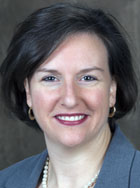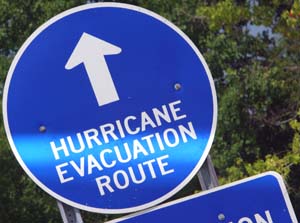Hurricanes, earthquakes and other major disasters take their toll not only on buildings and infrastructure, but also on the mental health of victims and volunteers. Monica M. Matthieu, Ph.D., disaster mental health expert, says, “It is important to realize that the community relationships and social network that we have before a disaster is the one that we will draw on for support and care after a disaster.” She is available to discuss the impact of disasters on victims, mental health professionals and volunteers; volunteering after a disaster; important disaster-related community resources; and how to develop a community network before a disaster. Her current comments on the topics follow:

Impact on mental health professionals and volunteers:
“Mental health professionals are not immune to the personal impact of disasters – at the same time that they may be providing psychological first aid to a disaster victim; they may be worrying about the safety and security of themselves and their own families,” she says. “Balancing work and home responsibilities during times of disaster is hard, but it happens to most everyone. Personal self care and healthy coping strategies like getting enough rest is critical to being able to continue to help others while at the same time taking care of yourself.”
Impact on victims:
“Individuals exposed to a disaster need help in the immediate aftermath — and you don’t have to be a mental health professional to assist them with basic needs. If you can, help them collect their belongings, offer them a place to sit down and rest, walk with them when they are upset, or ask if they need anything to help care for children or elders.”
“Just listening — really listening and not interrupting by telling them everything will be all right — goes a long way in helping others when they need to talk.”
How to build a community network:
“A community network is an investment in your community — whether that be at work, school, or in your neighborhood,” Matthieu says.
“We all need to consider the resources we have and what we will need long before the hurricane moves into the Gulf of Mexico or the storms roll in. Community networks start with a personal commitment to plan, discuss, and then document what each of us will do in the event of an emergency or disaster. It could be a simple as a list of phone numbers on an index card and a primary location where you will go in case of an emergency that you exchange with your neighbor.

“In building your network, you should consider the places where you live, work, and frequent — and all of the people you encounter along the way — they can be as much of a resource to you as you are to them.
“Taking disaster preparedness classes can really open your eyes as to what you need to do to be ready — for your family, neighborhood and your workplace — building a community network starts with being informed and then getting prepared.
Volunteering after a disaster:
“During 9/11, I was often asked where to go to volunteer to provide disaster mental health assistance,” she says.
“In addition to reciting the list of disaster relief organizations, I also encouraged people to start helping others by taking a look at their own backyard — find out if your child’s school needs assistance, ask the agencies and businesses that you frequent what type of help they might need. Go check on your elderly neighbor — make sure they have food and water and get them connected with disaster agencies so that they receive ongoing relief services.”
Social workers and schools of Social Work as important community resources:
“Attending to the multifaceted needs of a disaster affected community draws on the specialized skills of social workers,” Matthieu says. “As social workers, we really do think about the person in the environment – the impact of the environmental forces during disasters really refocuses us back to the basics of helping others. Starting where the client is during a disaster usually means — how are you doing — do you have clean water and a safe place to rest?
“Schools of social work are uniquely poised to be a hub of information and resources for communities that are faced with disasters. Field education departments often have a database of hundreds of local agencies and students that want to volunteer to help. Combining the resources of the university and the community can provide needed expertise on evidence based social work practices, community and social development strategies, academic supports for students, and health and human service leadership in times of great calamity and change.”